Resident Evil is celebrating 25 years as the gaming industry’s foremost survival horror franchise. Across its decade-and-a-half existence, the Resident Evil series has experienced some of gaming’s highest highs and its lowest lows. So, the TechRadar team has formed a S.T.A.R.S. unit of its own to rank the best games in the series.
For simplicity’s sake, we’ve stuck to the mainline entries of the Resident Evil series and the remakes. As good as Resident Evil Outbreak and Resident Evil Revelations 2 might be, we’ve unfortunately had to omit them in favor of the games Capcom put front and center.
The following 12 Resident Evil games have been ranked based on the team’s average rating, from the least to most favorable. So without further ado, let’s find out which Resident Evil games have evolved into nigh-unstoppable Crimson Heads, and which are left shambling limbless on the floor.
12. Resident Evil 6 (2012)
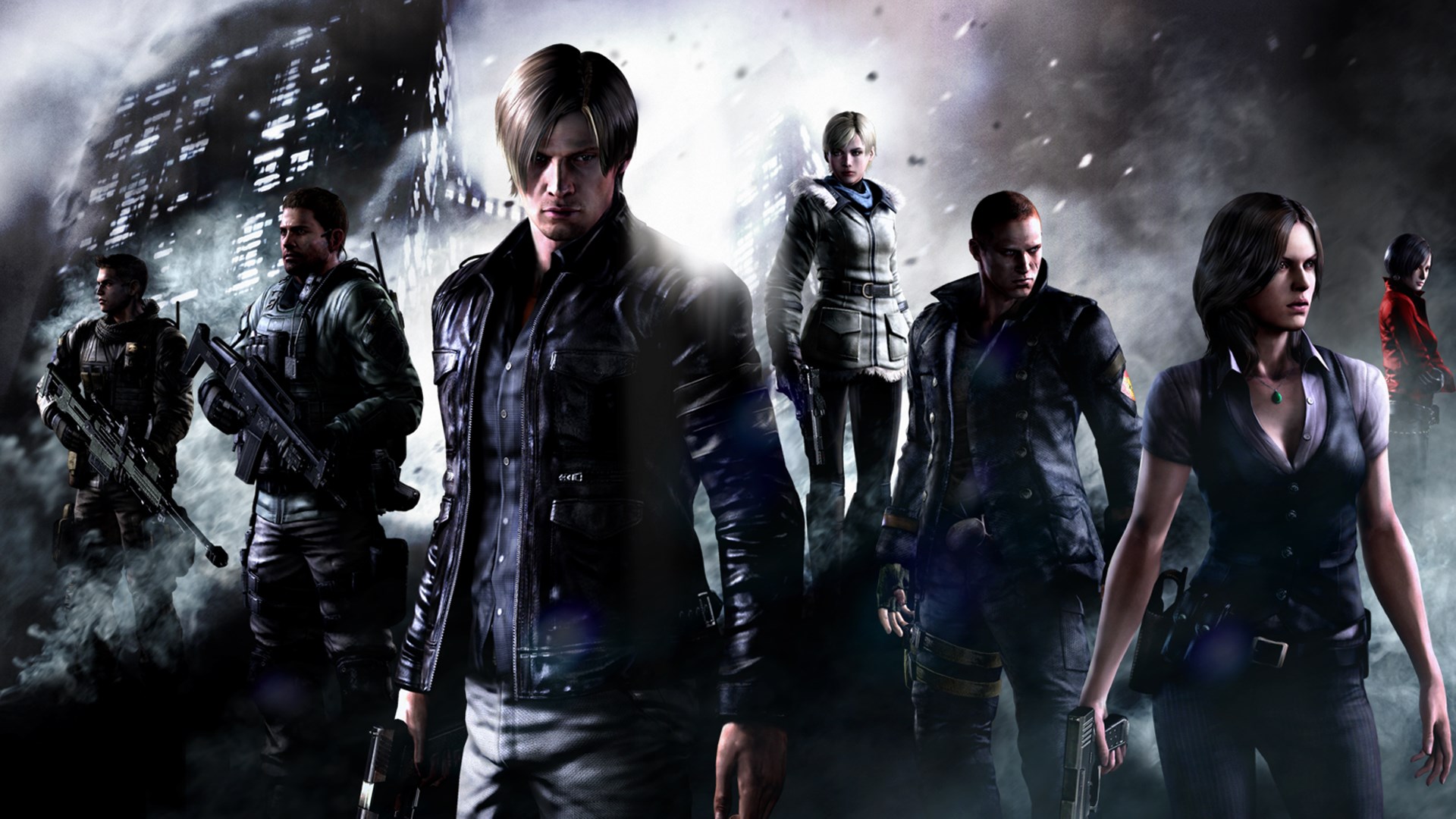
Predictably, the controversial Resident Evil 6 finds itself at the bottom of our list. That’s not to say the game is fundamentally terrible, as there’s still fun to be had with Resi 6’s satisfying gunplay and the occasional surprisingly great boss encounter.
Where Resident Evil 6 fails, though, is in the “too many cooks” approach to its design. Resident Evil games typically focus on a small selection of mainstay characters, but Resident Evil 6 throws a ton of them into separate campaigns. This scattershot approach leaves each campaign feeling undercooked due to the lack of focus.
Still, critical opinion on Resident Evil 6 has softened since its 2012 release, and while it might represent a low point for the series, it’s still worth a playthrough if you like Resident Evil’s shift to action over horror and don’t mind the nonsensical story.
11. Resident Evil Zero (2002)
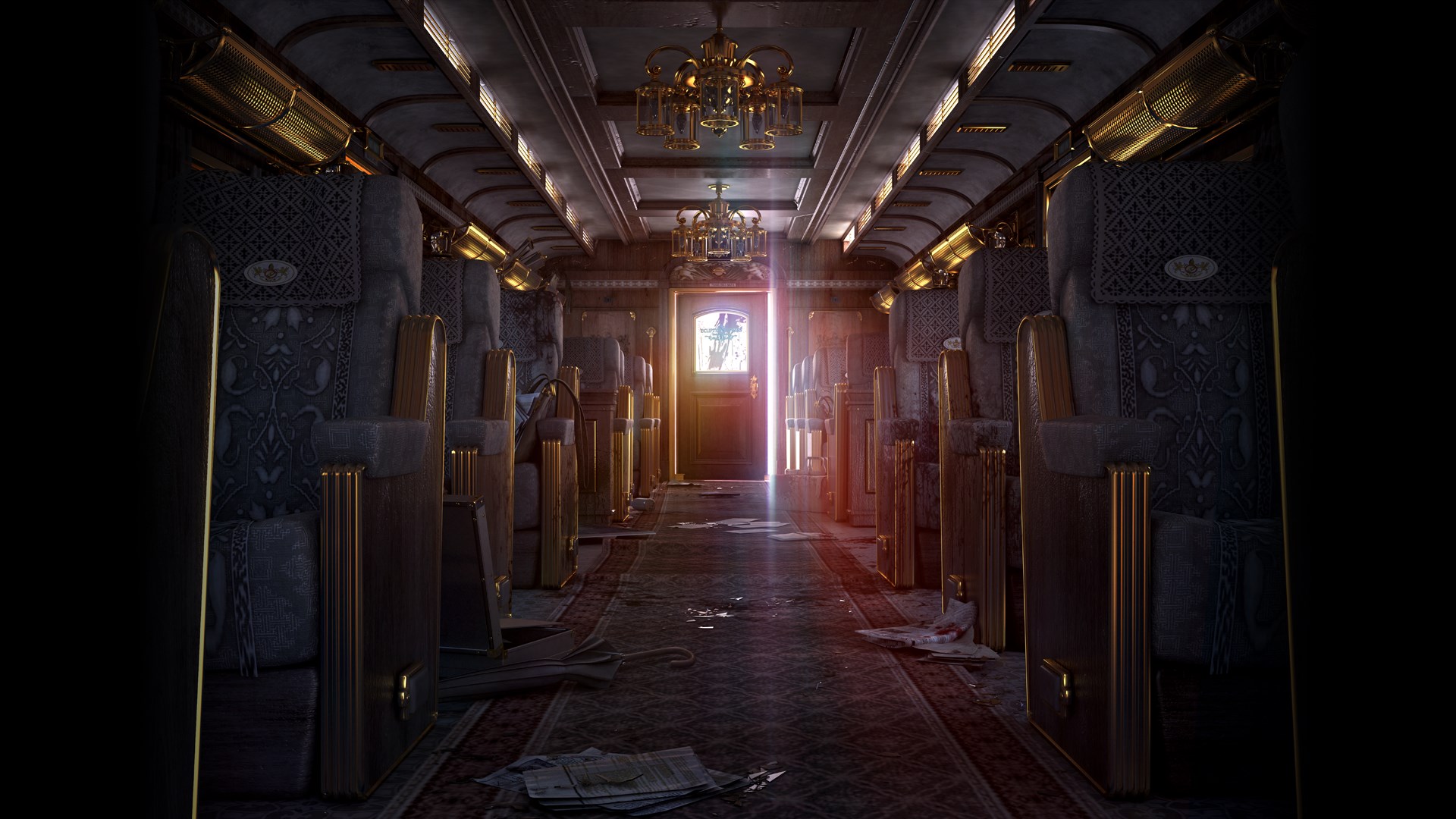
Originally released on the Gamecube in 2002, Resident Evil Zero capitalized on the high-quality pre-rendered visuals of Resident Evil Remake, but the impressive graphics couldn’t quite save this prequel from missing the mark in a number of ways.
Resident Evil Zero focuses on S.T.A.R.S. medic Rebecca Chambers as she attempts to rejoin her squad after being separated hours before the Spencer Mansion Incident. Together with escaped convict Billy Coen, players switch between the two characters to fight through a number of locations that uncover a great deal of the Umbrella Corporation’s dark history.
Players can switch between Rebecca and Billy at the press of a button, and the mechanic is often used to solve puzzles and explore sections independently of one another. It’s a neat idea, but the baffling omission of storage boxes seriously hampers the experience, with players having to remember where they’ve left key items to be picked up later on.
10. Resident Evil 5 (2009)
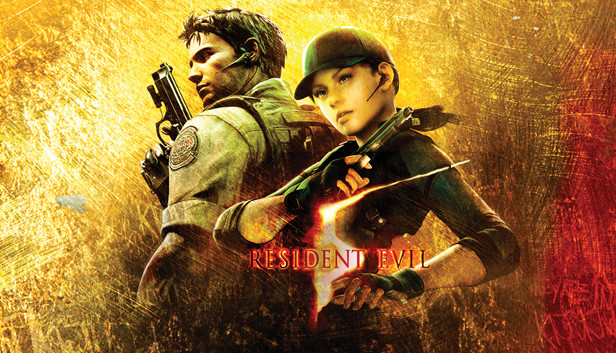
Resident Evil 5 had some big shoes to fill in the wake of Resident Evil 4, and hype for the follow-up couldn’t have been higher during its promotional cycle. So, did Resident Evil 5 deliver? Not quite, but that doesn’t mean it’s a disappointment - far from it, actually, as Resident Evil 5 despite its flaws is a great game in its own right.
Resident Evil 5 takes its lead characters Chris Redfield and Sheva Alomar to Africa for a final showdown with Albert Wesker. Despite incredibly strong sales, Resident Evil 5 remains one of the more controversial entries in the series, taking it even further in the action direction over survival horror, along with the setting and choices of enemies that some considered insensitive.
Resident Evil 5 was arguably hampered by the visual trappings of the time, too, being awash in the gritty, grayish brown color palette that many shooters of the time were obsessed with. As a result, Resident Evil 5 is less visually distinct than its peers.
For all its faults, though, Resident Evil 5 maintains one of the strongest cooperative experiences in all of gaming. The entire campaign benefits from the participation of a second player, and it’s definitely the preferred way to play the game, as your partner’s AI in single player leaves a lot to be desired.
9. Resident Evil 3: Nemesis (1999)
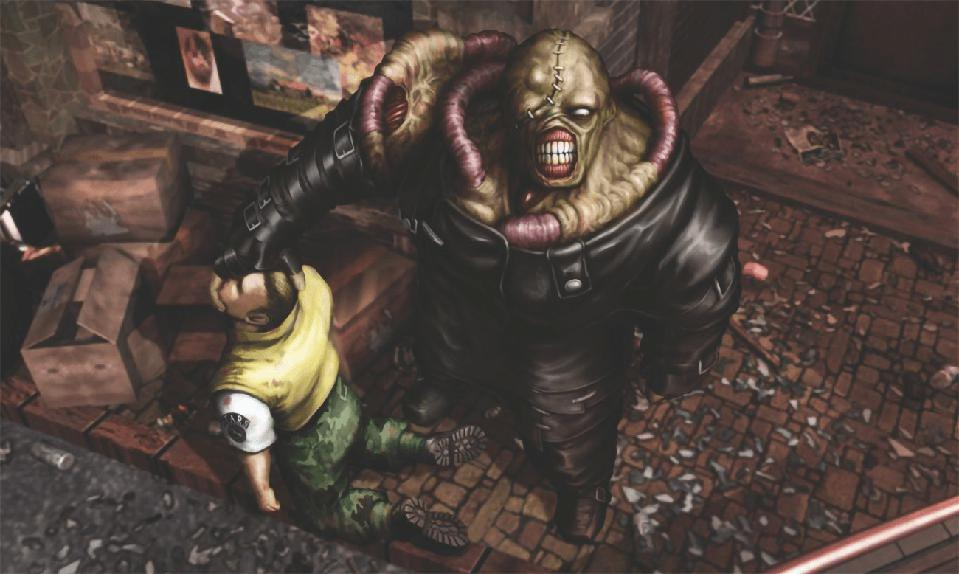
Resident Evil 3 bookended Capcom’s original trilogy on the PS1, and it’s a divisive one when compared to its predecessor: Resident Evil 2. A much more linear game than the two before it, Resident Evil 3 placed series icon Jill Valentine in the heart of Raccoon City as she makes a last ditch attempt to escape for good.
Resident Evil 3 is a smaller scale game than Resident Evil 2, and reused many of that game’s locations, but it got plenty right to make up for this. Jill’s a lot more comfortable around combat than Leon and Claire were, being able to wield many types of weapons, perform an evasive dodge and craft ammo for herself. That’s a very good thing, considering the threat that the titular villain represents.
Resident Evil 3 introduced Nemesis, an Umbrella bioweapon created to end the lives of the surviving S.T.A.R.S. members. Nemesis is freakishly ruthless, able to pursue Jill between rooms - a first for the series. He’s fast and extremely powerful, but if you’re able to take him down, the game provides extra rewards each time you do.
While Resident Evil 3 might not be as fondly remembered as the games it took after, it cemented Jill as one of the coolest characters in the series and one of the most iconic female videogame characters of all time.
8. Resident Evil 3 Remake (2020)
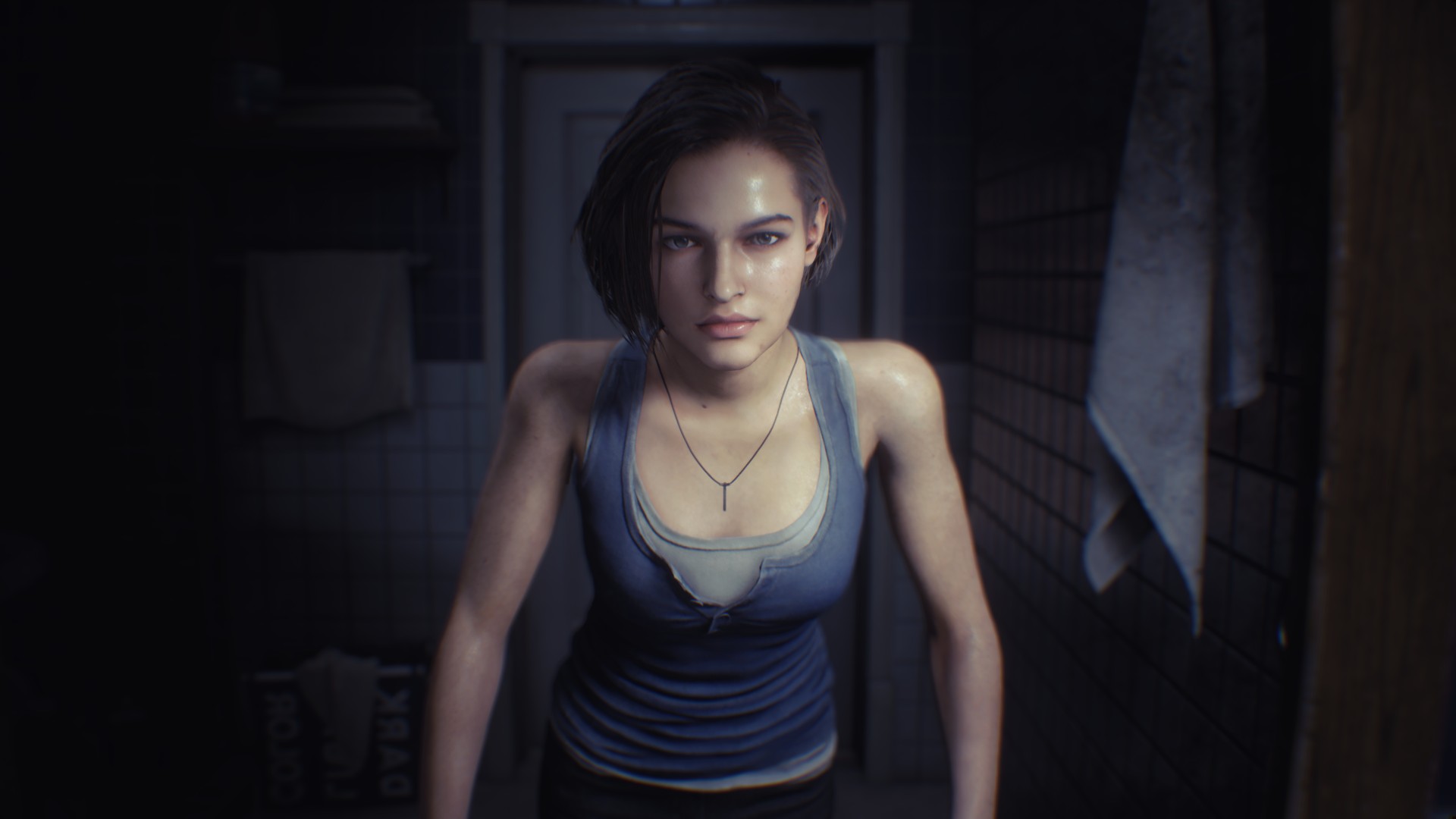
Jill Valentine, despite being a fan favorite character, was sadly left to the wayside by Capcom after the release of Resident Evil: Revelations. The Resident Evil 3 Remake marked her grand return, though, and it’s easily one of her best depictions in the series.
Now, Resident Evil 3’s remake isn’t perfect by any means. It’s noticeably rushed in places, with the returning Nemesis feeling nowhere near as threatening as before and acting far more predictably. Resident Evil 3’s legendary clock tower section was also bizarrely cut from the remake, leaving a game that despite its quality, still feels a little incomplete.
The game is still supremely enjoyable and replayable, though, with a brilliant opening section set in Raccoon City, and a well-written script featuring fantastic banter between main characters Jill and Carlos Oliveira, and the psychopathic Nikolai puts on one hell of an entrancing performance.
- Check out our review for Resident Evil 3 Remake
7. Resident Evil - Code: Veronica (2000)
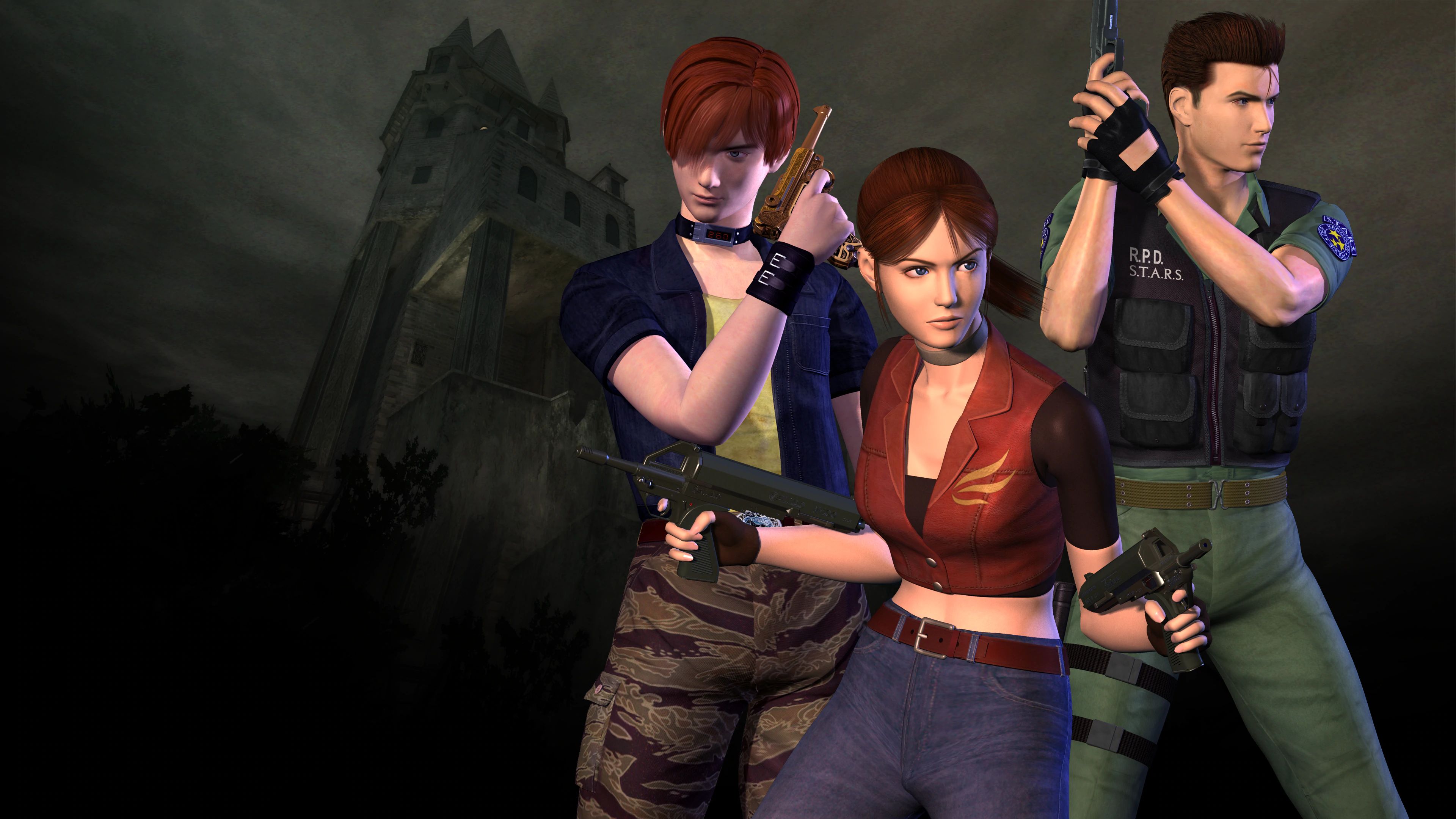
Debuting on the Sega Dreamcast in 2000, Code: Veronica was Resident Evil’s first big foray into true 3D environments, leaving pre-rendered backgrounds to the wayside for the time being. That proved to be a bad move in hindsight, as the dated visuals can’t hold a candle to the finely aged pre-rendered visuals of the original trilogy.
A follow-up of sorts to Resident Evil 2, Code: Veronica stars Claire Redfield as she infiltrates the Umbrella-backed Rockfort Island in search of her brother Chris. She’s joined by Steve Burnside - perhaps the most annoying character in the series’ history - and the two work to find Chris while simultaneously stopping the diabolical Ashford twins.
Code: Veronica doesn’t do much different from its predecessors, and it ironically feels a tad more dated thanks to bland level design, long-winded puzzles and tiresome backtracking. However, the delightful Alfred Ashford straddles the line between goofy and downright creepy, making for one of the series’ most entertaining villains.
6. Resident Evil (1996)
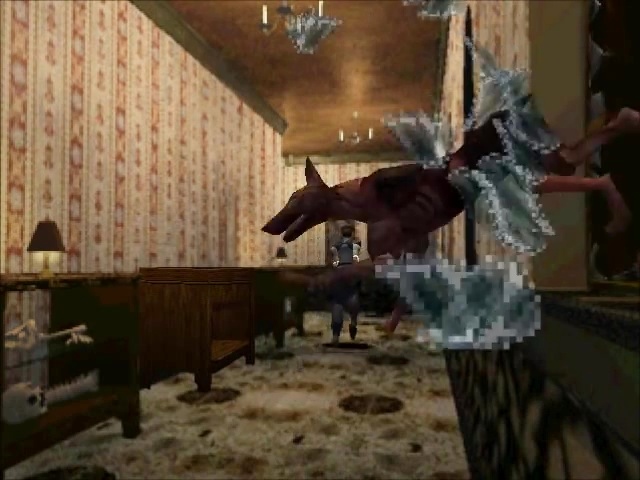
The game that started it all, the original PS1 version of Resident Evil might be best remembered today for its cringeworthy dialogue and voice acting, but that doesn’t change just how impressive a game Resident Evil was for its time.
The Spencer Mansion is oozing with a brooding atmosphere, made especially tense by the game’s strict focus on ammo and resource management. It’s genuinely difficult to dispatch every undead threat the mansion throws at you, and the path of least resistance is often a preferred method of progression, especially as fiercer enemy types (like the dreaded Hunters) are introduced later on in the game.
Resident Evil started the series off right, setting the groundwork for multiple playable characters, superb replay value, creepy bosses and a vast, hostile environment to not only explore, but attempt to survive in. For many, it’s still the purest Resi experience available.
5. Resident Evil Remake (2002)
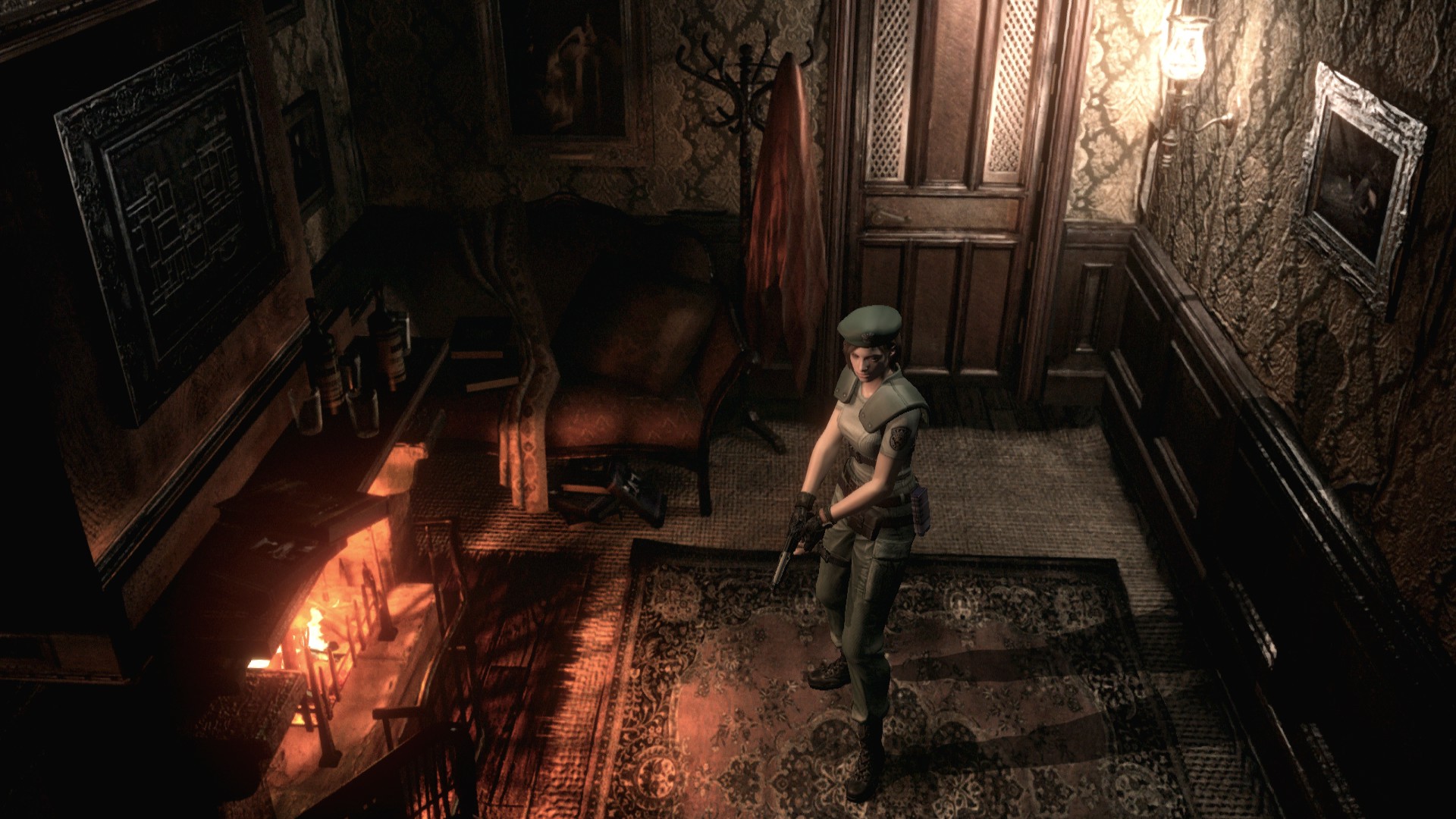
Everything Resident Evil accomplished back in 1996, its remake completely eclipsed six years later. So much so that Resident Evil Remake must have been Capcom’s intended vision for the original that was neutered due to the hardware limitations of the time.
The remake didn’t have to worry about that, though, using the graphical power of the Gamecube and stunning pre-rendered backgrounds. The refurbished Spencer Mansion is arguably the scariest location in the series, and the new ferocious Crimson Head enemy type definitely made us think twice about wantonly slaying zombies left and right!
Resident Evil Remake wasn’t just a pretty face, though, as it expanded on the original with new bosses and story content. We’ll never forget new threat Lisa and her chillingly dark backstory that feels more suited to a cerebral horror experience like Silent Hill.
4. Resident Evil 7: Biohazard (2017)
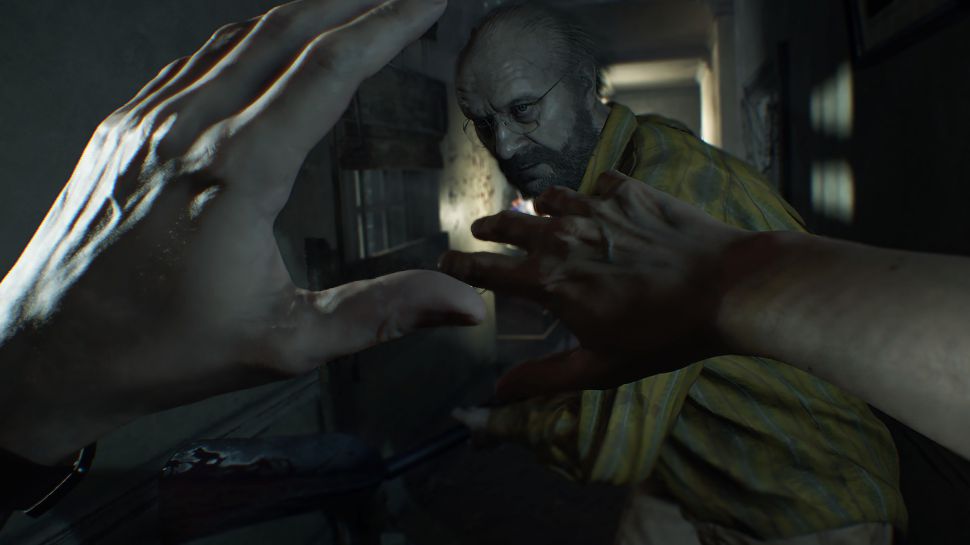
After a deluge of middling action-oriented outings for the series, Capcom must have felt the Resident Evil series was ailing. As such, Resident Evil 7 represented a “back to the drawing board” moment for the series, and it felt like such a breath of fresh air because of it.
Resident Evil 7 is something of a soft reboot for the series. It’s set in the established canon, but stars a host of new characters, including Ethan Winters who the player takes control of. Ethan’s off to Louisiana to investigate a rumor that his missing wife has been located. Poor Ethan gets in way over his head, however, as the Bakers - a Texas Chainsaw Massacre-esque family of mutated murderers - stalk his every move.
Resident Evil 7 possesses something that many games in the series lack: it’s genuinely scary. Resident Evil 7’s first-person perspective and tight field of view went hand in hand with the disgustingly ghoulish rural setting.
If the quality of Resident Evil 7 is anything to go by, we can’t help but be very excited for its sequel, Resident Evil Village, currently slated for a worldwide release of May 7.
- Check out our review of Resident Evil 7: Biohazard
3. Resident Evil 2 (1998)
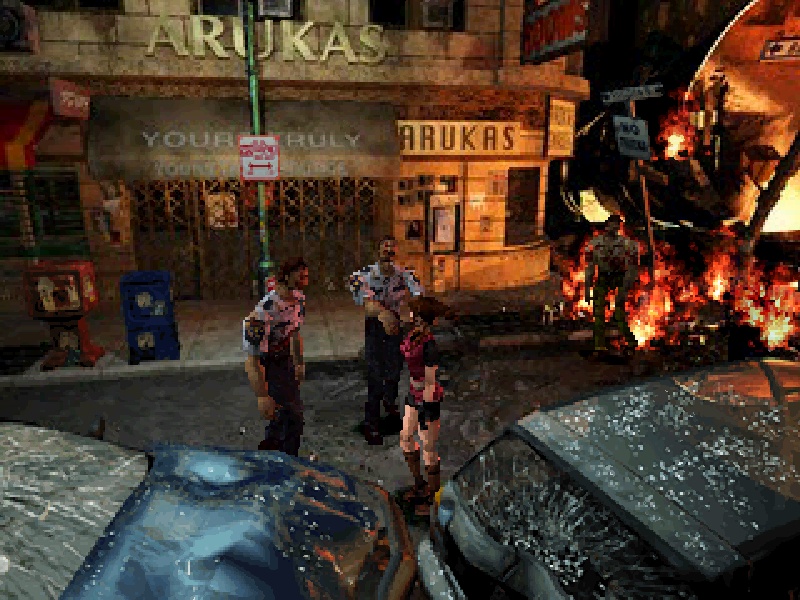
Resident Evil 2 is Capcom’s crowning achievement on the PS1, and it’s especially impressive that it turned out as well as it did given its well-documented troubled development.
Resident Evil 2 introduced series mainstay characters Leon S. Kennedy and Claire Redfield, the sister of the first game’s Chris, as they fight their way through a fully zombified Raccoon City in the wake of the Spencer Mansion Incident.
Resident Evil 2 leaned more in an action-oriented direction than the first game, with higher concentrations of zombies to wade through, but it was far from lacking in the scares department. The terrifying skinless Licker enemy debuted in Resident Evil 2, and remains one of the series’ most dangerous and feared monsters.
Resident Evil 2 is fondly remembered for its smart use of retooling the campaign around its two lead characters. There’s a consistent timeline between both Claire and Leon’s campaigns, and both have an unlockable “B” variant that switches things up considerably, as well as adding an extra layer of difficulty.
Fun fact, Resident Evil 2 spearheaded the career of Hideki Kamiya, who served as the game’s director. Without his brilliant direction or the sequel’s success, we may not have been graced with the likes of the original Devil May Cry as well as Okami, Bayonetta and The Wonderful 101, all of which Kamiya also directed.
2. Resident Evil 4 (2005)
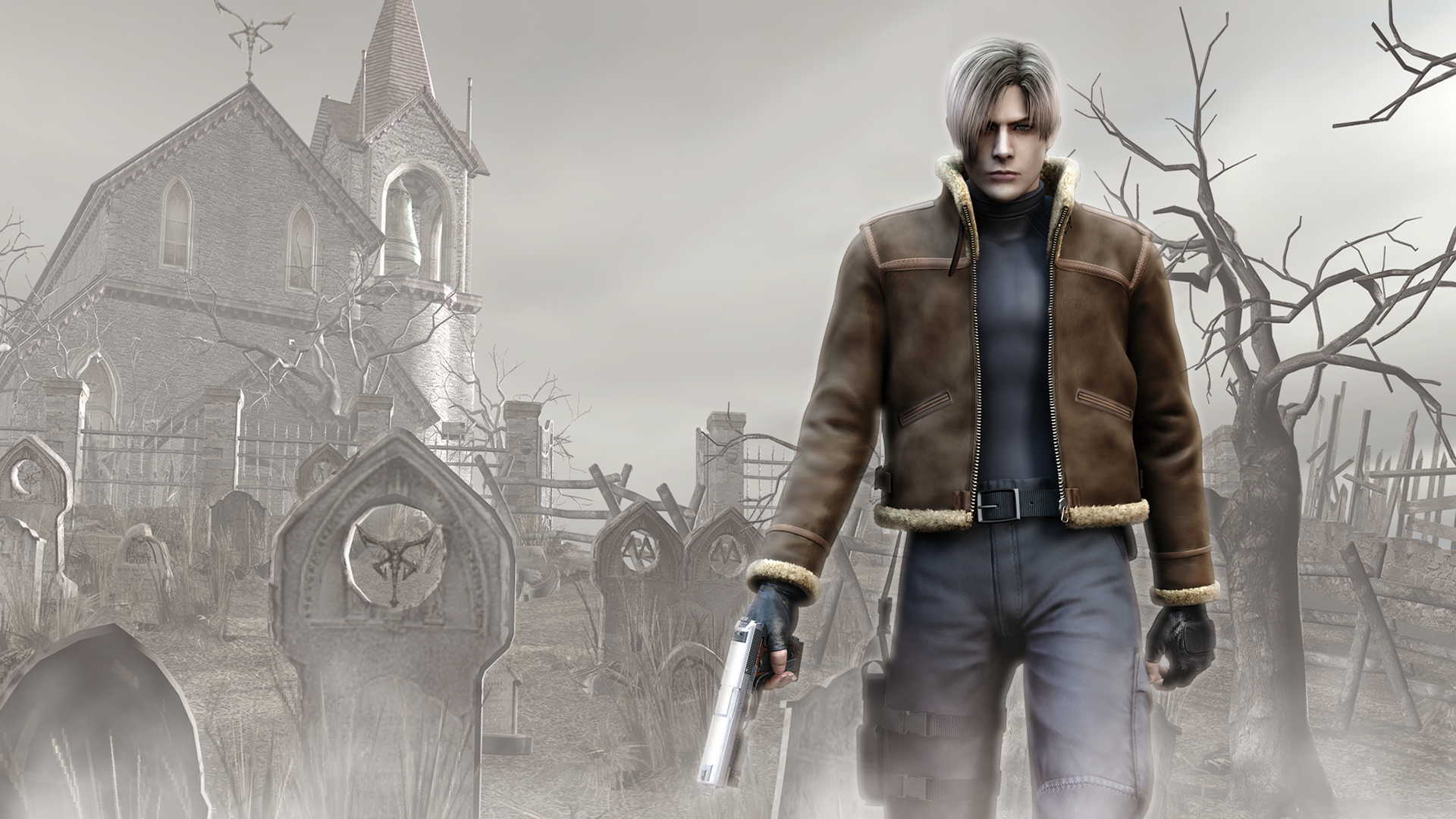
Resident Evil 4 is the game that - for better or worse - took the series in an entirely new direction. Honestly, there’s very little to say about Resident Evil 4 that hasn’t been done so already, as its legendary status speaks for itself. Not only is Resident Evil 4 one of the best games in the series, it’s flat out one of the best games. Period.
Resident Evil 4’s shift to an over-the-shoulder perspective and an overt focus on combat sounds like it would be an unmitigated disaster, but the level of gameplay quality, incredible pacing and smart level design put together by the developers made for a real lightning in a bottle moment for Capcom. True enough, the bar set so high by Resident Evil 4 has seldom been cleared by Capcom or any other developer for that matter.
Resident Evil 4 is one of the few games that feels infinitely replayable, thanks to its bevy of unlockable modes and New Game Plus feature, where players could continually replay the campaign to power up Leon and his arsenal even more. And who could forget The Mercenaries? This insanely addictive score attack minigame could have been - and eventually was on the Nintendo 3DS - a game all unto itself.
It might be one of the best games in the series, but Resident Evil 4 is also one of the weirdest. In any other game, surviving through a horrifying rural village only to be followed up by a goofy, booby trap-laden castle headed by a sickly Spanish man child would be a serious case of tonal whiplash. However, Resident Evil 4’s flawless pacing and delightfully cheesy script make it work effortlessly.
Resident Evil 4 is so good that we have a hard time imagining its rumored remake could possibly live up to the original. But with the incredible leaps and bounds our Number 1 pick made over its counterpart, we’re more than happy to see Capcom try.
1. Resident Evil 2 Remake (2019)
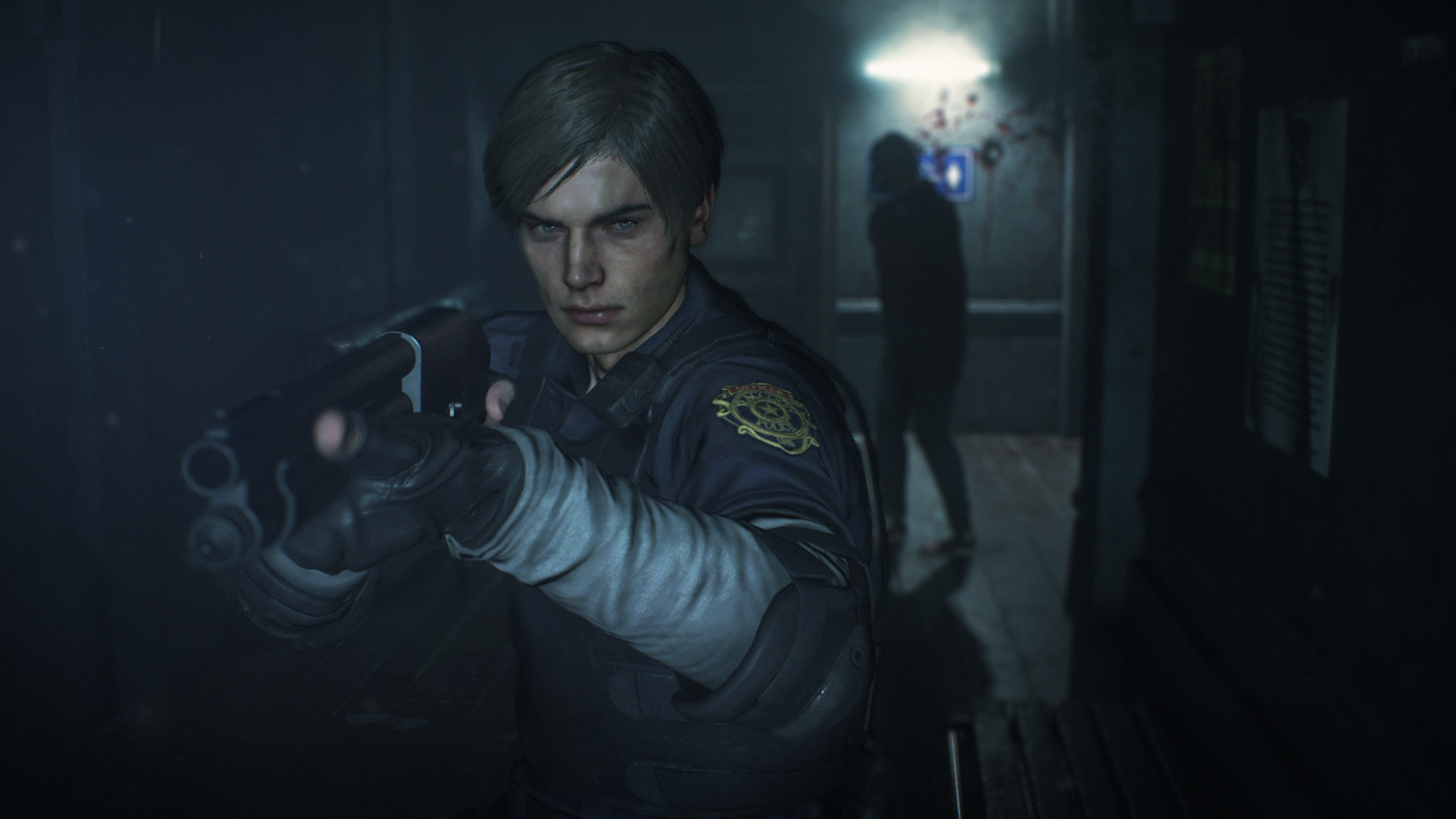
That’s right, Resident Evil 2’s remake is TechRadar’s pick for the best Resident Evil game of all time. Why? Well, just like Capcom had achieved with its remake of the first game, 2019’s Resident Evil 2 set a whole new standard for just how good a remake can be when given ample development time, paired with a team that clearly grew up playing the original and knew what made it so special.
This reimagining of Leon and Claire’s Raccoon City romp gave new life and a new perspective to iconic Resident Evil 2 locations. The museum-turned Raccoon City Police Department building has never looked and felt scarier to explore. It’s both an extremely faithful recreation of the locale in the RE Engine, and one that simultaneously feels fresh with new areas and its own surprising twists.
This time around, the zombies are no pushovers, upgraded from mere fodder to genuinely dangerous obstacles that require a decent amount of resources to take down. Zombies can pretend to be dead, only for them to spring back up and surprise you. They also feature intelligent limb damage, giving players the option to hamper a zombie’s mobility and ferocity by shooting off their limbs. The Licker also received some horrifying upgrades, being smarter and harder to kill than ever before.
Impressively, Resident Evil 2 Remake also maintains the extra modes from the original, including the “B” variants of the campaign for both Claire and Leon, the brutally hard 4th Survivor minigame and its humorous counterpart, The Tofu Survivor, in which you play as a large, sentient block of tofu armed only with a knife.
Still, none of these are Resident Evil 2 Remake’s greatest achievement. That would be the towering and terrifying Mister X, a somewhat throwaway enemy in the original, but now a frightening and unkillable force that constantly stalks the halls of the RCPD in search of Claire and Leon.
Mister X is no joke this time around as he’s able to move quickly, deal massive damage in the blink of an eye, and capitalize on the game’s level layout and enemy placement. Mister X knows the layout of the building better than you do, and has a habit of showing up at literally the worst possible times.
Resident Evil 2 is a near-flawless remake of an already fantastic survival horror game. Simply, it does nearly everything right, and provides its own creative twists on events we thought we were familiar with. In a sentence, Resident Evil 2 is everything a remake should aspire to be and more besides.
- Check out our review for Resident Evil 2 Remake
from TechRadar - All the latest technology news https://ift.tt/3eYcMx6




0 Comments